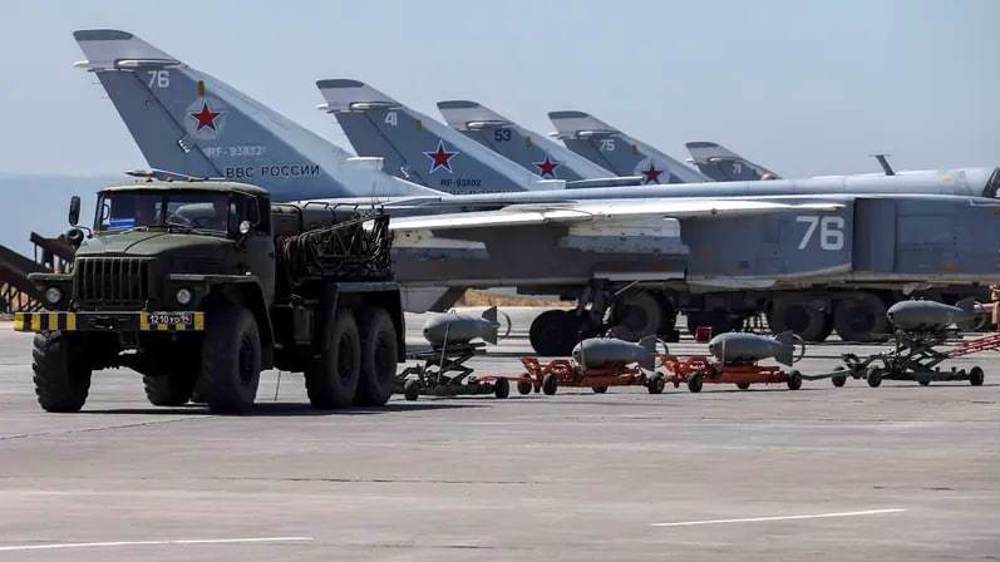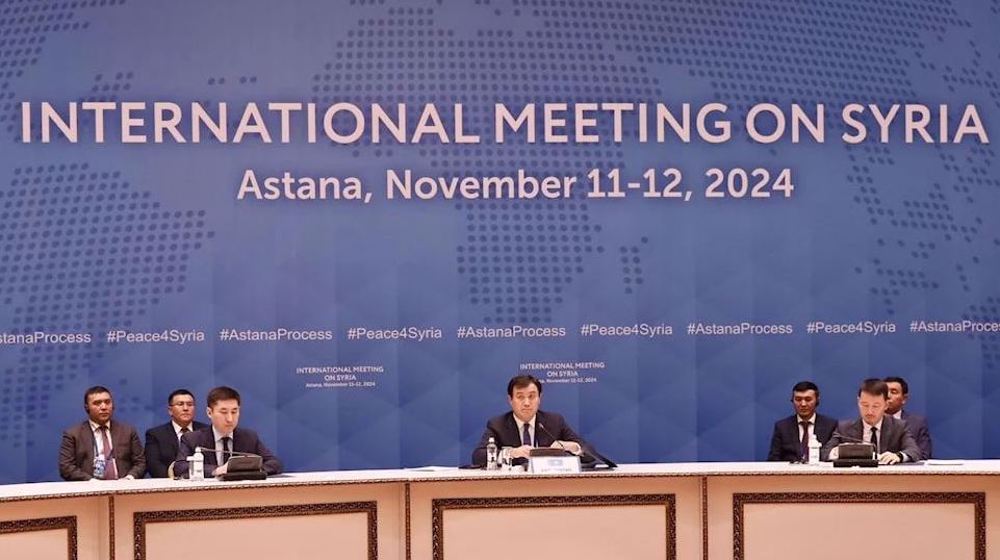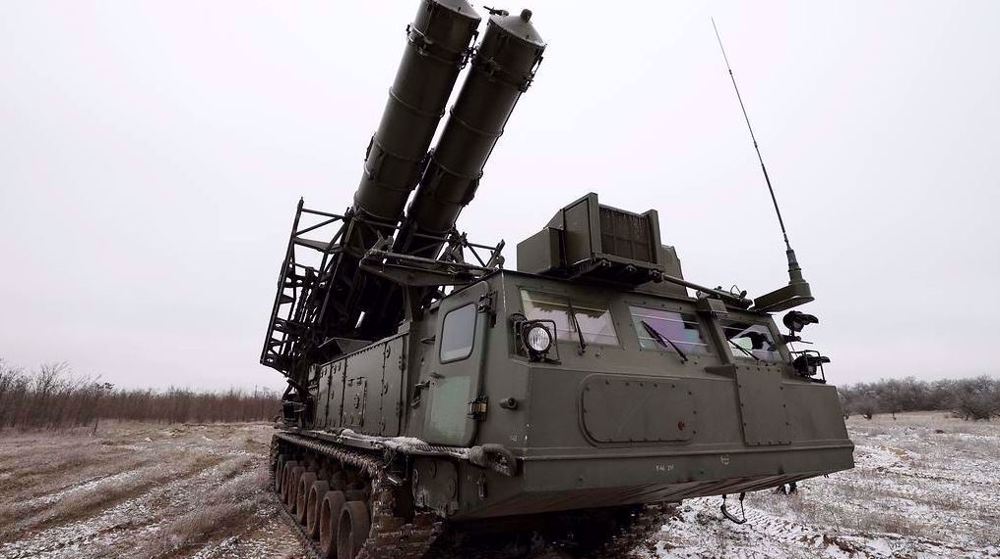French Senate backs resolution to lift EU sanctions on Russia
The French Senate has voted for a resolution aimed at lifting EU sanctions that were imposed on Russia over the crisis in eastern Ukraine and reunification with Crimea back in 2014. An influential senator says the future of the French Republic is "inconceivable without dialogue with Russia."
The non-binding motion was approved in the Luxembourg Palace on Wednesday with 302 senators voting in favor of the proposal and only 16 against the move, which stipulates a gradual scaling down of anti-Moscow restrictive measures.
According to French media reports, the motion cannot pressure the government because the renewal of the embargo is made in Brussels and requires unanimity of the 28 Member States.
During the Senate debates on the draft resolution, Jean-Pierre Raffarin (seen below), the French premier from 2002 through 2005 and currently a senator, said "France's future is inconceivable without dialogue with Russia... The text of the resolution is well-balanced and that’s why I’ll vote for it."

A few hours before the vote, Russia’s upper house speaker Valentina Matviyenko said, "The mere fact that such a decision has been submitted to the French Senate says a lot, regardless of the outcome.”
"This reflects the opinion of citizens of France about sanctions against Russia," she said, adding, "And I believe the French government should listen to the opinion of its own parliament… I’m sure that the long overdue stance in the society against anti-Russian sanctions leads to lifting them."
France’s lower house of parliament also adopted a similar measure in late April, when 55 members of the French National Assembly voted in favor of the resolution, submitted by 85 French MPs, calling on the government not to extend the EU-imposed sanctions.
To extend or not to extend
The 28-nation bloc should decide whether to renew the anti-Russian sanctions after they expire on July 31, but some of the Eurozone countries are getting cold feet as the extension of the measures may cost their volatile economies several billion euros and about thousands of jobs.
"The sanctions are there to ensure a political solution… I don't know what the European Council will decide on Russia sanctions,” German Foreign Minister Frank-Walter Steinmeier said late in May, adding that the recent release of Ukrainian pilot Nadezhda Savchenko (seen below) from jail would hopefully "bring a new dynamic into the talks between Russia and Ukraine."

Thierry Mariani, a member of the center-right Republicans party, who initiated the parliamentary debate, said the sanctions only cause harm. "I have seen our minister of agriculture standing in front of our farmers and say 'We have to lift the sanctions.' I've seen the minister of finance reiterate the same thing. And all they do is say 'We can't do anything, Europe is to blame'," he said in April. “We are demanding that the sanctions be lifted because they are totally ineffective and they are dangerous for our economy.”
According to RT, Italy and Hungary also said last month that there could be no automatic extension of EU sanctions against Russia.
In mid-May, the council of Veneto region in northeastern Italy endorsed a resolution, urging the country's government to work toward lifting the measures against Moscow. Twenty-nine out of 51 members of the council were for the resolution, while nine were against. According to Italian lawmaker Stefano Valdegamberi, in just one year the Veneto region lost over €600 million ($679.8 million) due to the decrease in exports to Russia.
But there is always another side to any story. Some of the European states, in contrast, are calling on Brussels not to relax sanctions on Moscow until the Minsk peace agreement is fully implemented.
Poland's Deputy Foreign Minister Konrad Szymanski has recently warned against lifting sanctions, saying it would weaken the bloc's position vis-à-vis Russia. "The European Union's authority ... in the future depends on the successful influencing of Russia through sanctions.”
The European Union, along with the United States, imposed economic sanctions on Russia after Crimea declared independence from Ukraine on March 17, 2014 and formally applied to become part of Russia following a referendum a day earlier, in which 96.8 percent of participants voted in favor of the secession.
Moscow-Kiev ties have been in tatters since the Crimean Peninsula rejoined Russia and Kiev started a military crackdown on pro-Russia forces fighting for greater autonomy in the Russian-speaking Luhansk and Donetsk regions in the east of the country. According to the United Nations, over 9,000 people have lost their lives and some 20,000 have been injured in the conflict since April 2014.
The United States and its European allies accuse Moscow of destabilizing Ukraine. Moscow, however, rejects having a hand in the crisis gripping the Eastern European state. The Kremlin has slapped restrictions on some food imports from the US, the EU, Norway, Australia and Canada in a tit-for-tat move.
VIDEO | Press TV's news headlines
VIDEO | Israel's push for West Bank annexation
VIDEO | Jordanian Journalists Syndicate denounces Israeli crimes against media workers
VIDEO | Grossi visits Tehran hoping to facilitate dialogue
VIDEO | Iran commemorates 13th anniversary of missile program pioneer
Israel’s aggression inflicts $8.5 billion in economic losses on Lebanon: World Bank
Hezbollah attacks Israeli military bases in Tel Aviv, Haifa
Hezbollah strikes multiple Israeli targets in fresh retaliatory operations















 This makes it easy to access the Press TV website
This makes it easy to access the Press TV website